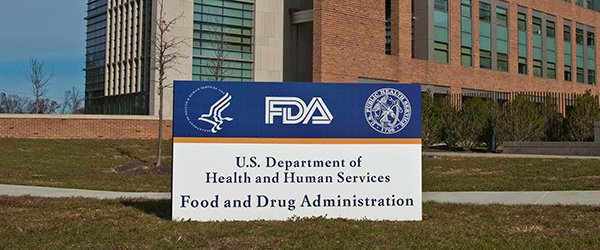According to a publication at Markets Insider, the Food and Drug Administration (FDA) recently approved Soliris (eculizumab) as a treatment for neuromyelitis optica spectrum disorder. The approval marks the first time the FDA has approved a treatment for the condition.
About Neuromyelitis Optica Spectrum Disorder
Neuromyelitis optica spectrum disorder (NMOSD), sometimes called Devic disease, is an autoimmune disorder of the central nervous system. It’s characterized by inflammation of the optic nerves and spinal cord. Inflammation attacks often recur, punctuated by periods of remission.
Autoimmune diseases are caused by the body’s mistaken identification of healthy cells or tissues as foreign pathogens. The immune system then targets and attacks these tissues like it would a virus, often with serious consequences.
Symptoms of NMOSD may vary in their severity, but are linked to the inflammatory episodes of the central nervous system. Inflammation of the optic nerve (optic neuritis) often presents itself with eye pain, followed by blurring vision — one or both eyes might be affected. Inflammation of the spinal cord (myelitis) can cause the loss of some or all motor, sensory, and autonomic function below the point of inflammation on the spine. Because of the similarity between symptoms, it can be initially difficult for physicians to discern between NMOSD and multiple sclerosis — which is also characterized by myelitis and optic neuritis.
First FDA-Approved Treatment for NMOSD
Soliris, generic name eculizumab, won its approval in the last days of June. In this instance, the drug comes in the form of an intravenous injection for adult patients who are anti-aquaporin-4 (AQP4) antibody positive.
AQP4 is a water channel protein found clustered in the eyes and brain astrocytes, among other places in the body. People who are anti-AQP4 positive have antibodies that bind to AQP4 proteins. When these antibodies bind to AQP4, it appears to trigger the inflammatory immune response that defines the condition.
A clinical study of 143 anti-AQP4 positive NMOSD patients, conducted over the course of 48 weeks, showed that patients treated with Soliris enjoyed a 94% reduction to their number of inflammation relapses over the course of treatment. Soliris also reduced the overall number of related hospitalizations, and the number of emergency episodes that must be treated with steroids and plasma transfusion.
However, due to the risk of meningococcal infection, patients receiving the treatment must be enrolled in a parallel Risk Evaluation and Mitigation Strategy (REMS) program to monitor their well-being.
What do you think of this exciting news? Share your thoughts with Patient Worthy!






